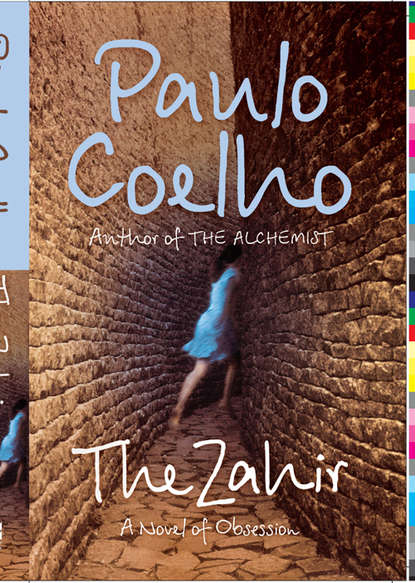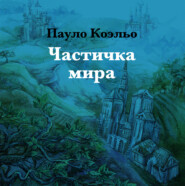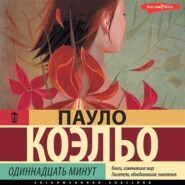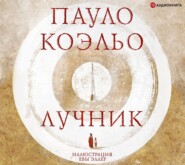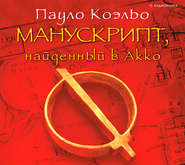По всем вопросам обращайтесь на: info@litportal.ru
(©) 2003-2024.
✖
The Zahir: A Novel of Obsession
Автор
Год написания книги
2018
Настройки чтения
Размер шрифта
Высота строк
Поля
I look at the Eiffel Tower: another hour has passed, and it is glittering again as if it were made of diamonds. I have no idea how often this has happened since I have been at the window.
I know that, in the name of the freedom of our marriage, I did not notice that Mikhail had disappeared from my wife’s conversations, only to reappear in a bar and disappear again, this time taking her with him and leaving behind the famous, successful writer as prime suspect.
Or, worse still, as a man abandoned.
Han’s question (#ulink_b1ab6c70-c564-5674-96a2-7e310659db65)
In Buenos Aires, (#ulink_1026a4c8-b4a3-5933-972a-1403aab6aae1)the Zahir is a common 20-centavo coin; the letters N and T and the number 2 bear the marks of a knife or a letter-opener; 1929 is the date engraved on the reverse. (In Gujarat, at the end of the eighteenth century, the Zahir was a tiger; in Java, it was a blind man from the Surakarta mosque who was stoned by the faithful; in Persia, an astrolabe that Nadir Shah ordered to be thrown into the sea; in Mahdi’s prisons, in around 1892, a small compass that had been touched by Rudolf Karl von Slatin…)
A year later, I wake thinking about the story by Jorge Luis Borges, about something which, once touched or seen, can never be forgotten, and which gradually so fills our thoughts that we are driven to madness. My Zahir is not a romantic metaphor – a blind man, a compass, a tiger, or a coin.
It has a name, and her name is Esther.
Immediately after leaving prison, I appeared on the covers of various scandal sheets: they began by alleging a possible crime, but, in order to avoid ending up in court, they always concluded with the statement that I had been cleared (cleared? I hadn’t even been accused!). They allowed a week to pass; they checked to see if the sales had been good (they had, because I was the kind of writer who was normally above suspicion, and everyone wanted to find out how it was possible for a man who writes about spirituality to have such a dark side). Then they returned to the attack, alleging that my wife had run away because of my many extramarital affairs: a German magazine even hinted at a possible relationship with a singer, twenty years my junior, who said she had met me in Oslo, in Norway (this was true, but the meeting had only taken place because of the Favour Bank – a friend of mine had asked me to go and had been with us throughout the only supper we had together). The singer said that there was nothing between us (so why put a photo of us on the cover?) and took the opportunity to announce that she was releasing a new album: she had used both the magazine and me, and I still don’t know whether the failure of the album was a consequence of this kind of cheap publicity (the album wasn’t bad, by the way – what ruined everything were the press releases).
The scandal over the famous writer did not last long; in Europe, and especially in France, infidelity is not only accepted, it is even secretly admired. And no one likes to read about the sort of thing that could so easily happen to them.
The topic disappeared from the front covers, but the hypotheses continued: she had been kidnapped, she had left home because of physical abuse (photo of a waiter saying that we often argued: I remember that I did, in fact, have an argument with Esther in a restaurant about her views on a South American writer, which were completely opposed to mine). A British tabloid alleged – and luckily this had no serious repercussions – that my wife had gone into hiding with an Islamist terrorist organisation.
This world is so full of betrayals, divorces, murders, assassination attempts, that a month later the subject had been forgotten by the ordinary public. Years of experience had taught me that this kind of thing would never affect my faithful readership (it had happened before, when a journalist on an Argentinian television programme claimed that he had ‘proof’ that I had had a secret meeting in Chile with the future first lady of the country – but my books remained on the bestseller lists). As an American artist almost said: Sensationalism was only made to last fifteen minutes. My main concern was quite different: to reorganise my life, to find a new love, to go back to writing books, and to put away any memories of my wife in the little drawer that exists on the frontier between love and hate.
Or should I say memories of my ex-wife (I needed to get used to the term).
Part of what I had foreseen in that hotel room did come to pass. For a while, I barely left the apartment: I didn’t know how to face my friends, how to look them in the eye and say simply: ‘My wife has left me for a younger man.’ When I did go out, no one asked me anything, but after a few glasses of wine I felt obliged to bring the subject up – as if I could read everyone’s mind, as if I really believed that they had nothing more to occupy them than what was happening in my life, but that they were too polite or smug to say anything. Depending on my mood, Esther was either a saint who deserved better, or a treacherous, perfidious woman who had embroiled me in such a complicated situation that I had even been thought a criminal.
Friends, acquaintances, publishers, people I sat next to at the many gala dinners I was obliged to attend, listened with some curiosity at first. Gradually, though, I noticed that they tended to change the subject; they had been interested in the subject at some point, but it was no longer part of their current curiosities: they were more interested in talking about the actress who had been murdered by a singer or about the adolescent girl who had written a book about her affairs with wellknown politicians. One day, in Madrid, I noticed that the number of guests at events and suppers was beginning to fall off. Although it may have been good for my soul to unburden myself of my feelings, to blame or to bless Esther, I began to realise that I was becoming something even worse than a betrayed husband: I was becoming the kind of boring person no one wants to be around.
I decided, from then on, to suffer in silence, and the invitations once more flooded in through my letter box.
But the Zahir, about which I initially used to think with either irritation or affection, continued to grow in my soul. I started looking for Esther in every woman I met. I would see her in every bar, every cinema, at bus stops. More than once I ordered a taxi driver to stop in the middle of the street or to follow someone, until I could persuade myself that the person was not the person I was looking for.
With the Zahir beginning to occupy my every thought, I needed an antidote, something that would not take me to the brink of despair.
There was only one possible solution: a girlfriend.
I encountered three or four women I felt drawn to, but then I met Marie, a 35-year-old French actress. She was the only one who did not spout such nonsense as: ‘I like you as a man, not as the celebrity everyone wants to meet’ or ‘I wish you weren’t quite so famous’, or worse still: ‘I’m not interested in money.’ She was the only one who was genuinely pleased at my success, because she too was famous and knew that celebrity counts. Celebrity is an aphrodisiac. It was good for a woman’s ego to be with a man and know that he had chosen her even though he had had the pick of many others.
We were often seen together at parties and receptions; there was speculation about our relationship, but neither she nor I confirmed or denied anything, and the matter was left hanging, and all that remained for the magazines was to wait for the photo of the famous kiss – which never came, because both she and I considered such public exhibitionism vulgar. She got on with her filming and I with my work; when I could, I would travel to Milan, and when she could, she would meet me in Paris; we were close, but not dependent on each other.
Marie pretended not to know what was going on in my soul, and I pretended not to know what was going on in hers (an impossible love for a married neighbour, even though she could have had any man she wanted). We were friends, companions, we enjoyed the same things; I would even go so far as to say that there was between us a kind of love, but different from the love I felt for Esther or that Marie felt for her neighbour.
I started taking part in book-signings again, I accepted invitations to give lectures, write articles, attend charity dinners, appear on television programmes, help out with projects for up-and-coming young artists. I did everything except what I should have been doing, i.e. writing a book.
This didn’t matter to me, however, for in my heart of hearts I believed that my career as a writer was over, because the woman who had made me begin was no longer there. I had lived my dream intensely while it lasted, I had got farther than most people are lucky enough to get, I could spend the rest of my life having fun.
I thought this every morning. In the afternoon, I realised that the only thing I really liked doing was writing. By nightfall, there I was once more trying to persuade myself that I had fulfilled my dream and should try something new.
The following year was a Holy Year (#ulink_305e04f1-71b7-504d-b4c7-5f559ed3a539) in Spain, the Año Santo Compostelano, which occurs whenever the day of St James of Compostela, 25 July, falls on a Sunday. A special door to the Cathedral in Santiago stands open for 365 days, and, according to tradition, anyone who goes through that door receives a series of special blessings.
There were various commemorative events throughout Spain, and since I was extremely grateful for the pilgrimage I had made, I decided to take part in at least one event: a talk, in January, in the Basque country. In order to get out of my routine – trying to write a book/going to a party/to the airport/visiting Marie in Milan/going out to supper/to a hotel/to the airport/surfing the Internet/going to the airport/to an interview/to another airport – I chose to drive the 1,400 kilometres there alone.
Everywhere – even those places I have never visited before – reminds me of my private Zahir. I think how Esther would love to see this, how much she would enjoy eating in this restaurant or walking by this river. I spend the night in Bayonne and, before I go to sleep, I turn on the television and learn that there are about 5,000 trucks stuck on the frontier between France and Spain, due to a violent and entirely unexpected snowstorm.
I wake up thinking that I should simply drive back to Paris: I have an excellent excuse for cancelling the engagement, and the organisers will understand perfectly – the traffic is in chaos, there is ice on the roads, both the French and Spanish governments are advising people not to leave home this weekend because the risk of accidents is so high. The situation is worse than it was last night: the morning paper reports that on one stretch of road alone there are 17,000 people trapped; civil defence teams have been mobilised to provide them with food and temporary shelters, since many people have already run out of fuel and cannot use their car heaters.
The hotel staff tell me that if I really have to travel, if it’s a matter of life or death, there is a minor road I can take, which, while it will avoid the blockages, will add about two hours to my journey time, and no one can guarantee what state the road will be in. Instinctively, I decide to go ahead; something is forcing me on, out onto the icy asphalt and to the hours spent patiently waiting in bottlenecks.
Perhaps it is the name of the city: Vitória – Victory. Perhaps it is the feeling that I have grown too used to comfort and have lost my ability to improvise in crisis situations. Perhaps it is the enthusiasm of the people who are, at this moment, trying to restore a cathedral built many centuries ago and who, in order to draw attention to their efforts, have invited a few writers to give talks. Or perhaps it is the old saying of the conquistadors of the Americas: ‘it is not life that matters, but the journey’.
And so I keep on journeying. After many long, tense hours, I reach Vitória, where some even tenser people are waiting for me. They say that there hasn’t been a snowstorm like it for more than thirty years, they thank me for making the effort, and continue with the official programme, which includes a visit to the Cathedral of Santa María.
A young woman with shining eyes starts telling me the story. To begin with there was the city wall. The wall remained, but one part of it was used to build a chapel. Many years passed, and the chapel became a church. Another century passed, and the church became a Gothic cathedral. The cathedral had had its moments of glory, there had been structural problems, for a time it had been abandoned, then restoration work had distorted the whole shape of the building, but each generation thought it had solved the problem and would rework the original plans. Thus, in the centuries that followed, they raised a wall here, took down a beam there, added a buttress over there, created or bricked up stained-glass windows.
And the cathedral withstood it all.
I walk through the skeleton of the cathedral, studying the restoration work currently being carried out: this time the architects guarantee that they have found the perfect solution. Everywhere there are metal supports, scaffolding, grand theories about what to do next and some criticism about what was done in the past.
And suddenly, in the middle of the central nave, I realise something very important: the cathedral is me, it is all of us. We are all growing and changing shape, we notice certain weaknesses that need to be corrected, we don’t always choose the best solution, but we carry on regardless, trying to remain upright and decent, in order to do honour not to the walls or the doors or the windows, but to the empty space inside, the space where we worship and venerate what is dearest and most important to us.
Yes, we are all cathedrals, there is no doubt about it; but what lies in the empty space of my inner cathedral?
Esther, the Zahir.
She fills everything. She is the only reason I am alive. I look around, I prepare myself for the talk I am to give, and I understand why I braved the snow, the traffic jams and the ice on the roads: in order to be reminded that every day I need to rebuild myself and to accept – for the first time in my entire existence – that I love another human being more than I love myself.
On the way back to Paris – in far more favourable weather conditions – I am in a kind of trance: I do not think, I merely concentrate on the traffic. When I get home, I ask the maid not to let anyone in, and ask her if she can sleep over for the next few nights and make me breakfast, lunch and supper. I stamp on the small apparatus that connects me to the Internet, destroying it completely. I unplug the telephone. I put my mobile in a box and send it to my publisher, saying that he should only give it back to me when I come round personally to pick it up.
For a week, I walk by the Seine each morning and, when I get back, I lock myself in my study. As if I were listening to the voice of an angel, I write a book, or, rather, a letter, a long letter to the woman of my dreams, to the woman I love and will always love. This book might one day reach her hands and even if it doesn’t, I am now a man at peace with his spirit. I no longer wrestle with my wounded pride, I no longer look for Esther on every corner, in every bar and cinema, at every supper, I no longer look for her in Marie or in the newspapers.
On the contrary, I am pleased that she exists; she has shown me that I am capable of a love of which I myself knew nothing, and this leaves me in a state of grace.
I accept the Zahir, and will let it lead me into a state of either holiness or madness.
A Time to Rend and a Time (#ulink_dd09aa76-0b8d-51d3-bf23-db073d19c0fd) to Sew – the title is from a verse in Ecclesiastes – was published at the end of April. By the second week of May, it was already number one in the bestseller lists.
The literary supplements, which have never been kind to me, redoubled their attacks. I cut out some of the key phrases and stuck them in a notebook along with reviews from previous years; they said basically the same thing, merely changing the title of the book:
‘…once again, despite the troubled times we live in, the author offers us an escape from reality with a story about love…’ (as if people could live without love)
‘…short sentences, superficial style…’ (as if long sentences equalled profundity)
‘…the author has discovered the secret of success – marketing…’ (as if I had been born in a country with a long literary tradition and had had millions to invest in my first book)
‘…it will sell as well as all his other books, which just proves how unprepared human beings are not to face up to the encircling tragedy…’ (as if they knew what it meant to be prepared).
Some reviews, however, were different, adding that I was profiting from last year’s scandal in order to make even more money. As always, these negative reviews only served to sell more of my books: my faithful readers bought the book anyway, and those who had forgotten about the whole sorry business were reminded of it again and so also bought copies, because they wanted to hear my version of Esther’s disappearance (since the book was not about that, but was, rather, a hymn to love, they must have been sorely disappointed and would doubtless have decided that the critics were spot on). The rights were immediately sold to all the countries where my books were usually published.
Marie, who read the typescript before I sent it to the publisher, showed herself to be the woman I had hoped she was: instead of being jealous, or saying that I shouldn’t bare my soul like that, she encouraged me to go ahead with it and was thrilled when it was a success. At the time, she was reading the teachings of a little-known mystic, whom she quoted in all our conversations.





